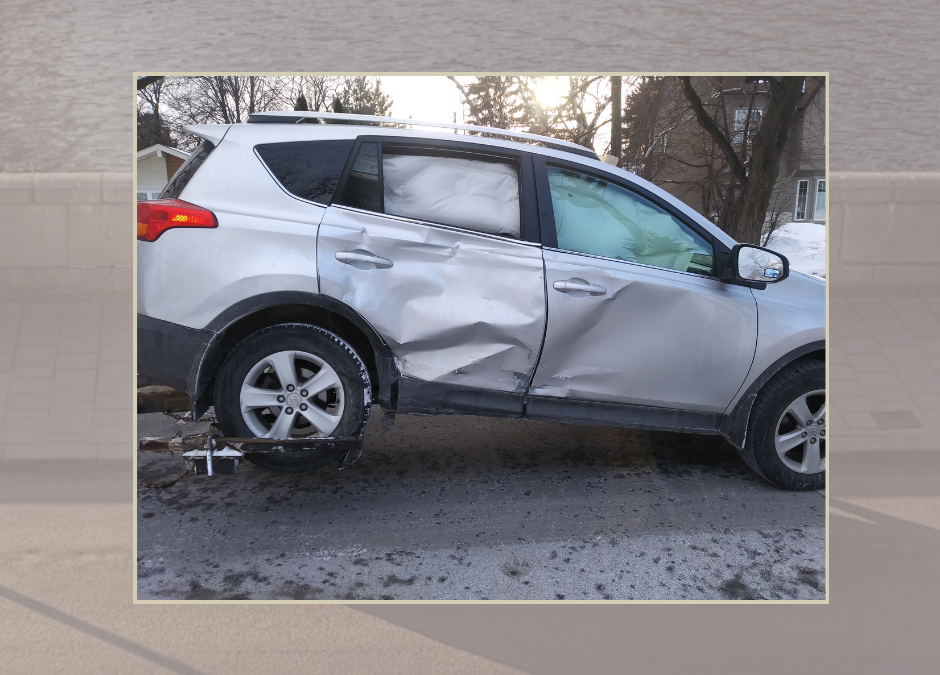
by Cori Leigh | Aug 15, 2024 | Coping while Grieving, Dealing with Loss, Encouragement for Caregivers, Grief
Losing a loved one is a heart-wrenching experience. If you are in grief and missing a loved one, I’m sorry for your loss. The weight of grief is often compounded by extreme fatigue. When someone you love dies, it feels as if your world has been upended. My world was turned upside down as I cared for my dad, who lived with mixed dementia and cancer. I coped with waves of anticipatory grief, deeply saddened to see him struggle with his health conditions.
I cherished every moment I had left with my dad. He lived his 85 years to the fullest, filling every corner of my life with his love. My dad navigated life with vibrant energy, artistic talent, humor, and kindness. I see the season of caregiving and being with him in his time of need as a gift. It provided a chance to give back to a dad who loved me so much.
In the early morning of November 12, 2022, my dear dad passed away. During his final months, I cared for him almost every night until the personal support worker arrived in the morning. In the aftermath of his passing, I realized just how much exhaustion had accumulated over those few years of caregiving.
In this post, I share some of my journey through the intense grief and fatigue that accompany the loss of a loved one. I offer suggestions for gradually finding a new balance, renewed strength, and hope while coping with both grief and fatigue.
Coping with the Weight of Grief
“In the silence of grief, we find seeds of peace and whispers of hope for renewal and strength.
Grief affects every facet of our being, impacting every aspect of life. After my dad passed away, the weight of sadness entered every fiber of my being. I couldn’t fathom living each day without him. The loss was overwhelming and touched every area of my life. I couldn’t envision what the future would look like without my dad in it. The physical and emotional fatigue from caregiving often goes unnoticed until after our loved one has passed.
It was only after my dad’s death that I became acutely aware of how emotionally and physically drained I had become. The brain fog was so thick that I struggled to think clearly or carry out everyday tasks. I needed restoration and healing but didn’t know where to start. I felt disoriented, as my mind and body reacted to the stress of the emotional journey leading up to my dad’s passing.
Grief and fatigue affect the body and mind in various ways. Physically, you might experience sleep disturbances, headaches, muscle tension, and a weakened immune system. Emotionally, fatigue can amplify feelings of sadness, anxiety, and guilt. The constant demands of caregiving, and the emotional strain of loss, can deplete your energy, leaving you feeling drained and disoriented.
Here are some suggestions to help you cope with grief and the fatigue that accompanies it;
Understand that What Your Feeling is Normal
Grief is a deeply personal and often overwhelming experience. It can bring a range of emotions like sadness, anger, confusion, even numbness. Recognizing that these feelings are valid and part of the grieving process is the first step toward healing. You are not alone, and what you feel right now makes sense given all you’ve been through.
Acknowledge the Fatigue That Comes With Grief
Grief doesn’t just affect your emotions, it impacts your entire body. The exhaustion you feel is a natural response to the physical and emotional toll of loss. Give yourself grace. Resting isn’t lazy or indulgent, it’s essential to your recovery.
Allow Yourself to Feel and Express Emotions
Suppressing your feelings might seem easier in the short term, but unprocessed grief can linger. Give yourself permission to cry, journal, talk, or simply sit with your emotions. There’s no “right” way to grieve, only what’s true for you.
Prioritize Rest and Sleep
Healing requires rest. When your heart is heavy and your body is tired, quality sleep becomes even more important. Create a calming nighttime routine, limit screen time before bed, and make sleep a non-negotiable part of your self-care.
Practice Gentle, Nourishing Self-Care
Grief can make even the smallest tasks feel overwhelming, but small acts of self-care matter. Eat nourishing meals, go for a walk, listen to calming music, pray or meditate. These simple rituals can help support both body and soul during hard times.
Lean on Trusted Support
You don’t have to go through this alone. Reach out to those who care such as, family, close friends, or a grief support group. Surrounding yourself with people who understand can help you feel seen, heard, and less alone in your pain.
Share Your Heart and Let Others In
Talking about your loss can be incredibly healing. Whether it’s with someone you trust or through writing, expressing what’s on your heart reduces isolation. Let others carry some of the weight with you. It’s okay to lean on others when you need to.
Seek Professional Support if You Need It
Sometimes, grief can become too heavy to manage on your own. A licensed therapist or grief counselor can offer a safe space to process your loss and help you develop healthy coping strategies.
Moving Forward with Hope
Though the path through grief may feel endless, hold on to hope. In time you can rediscover a new sense of balance and hope. Moving forward with your grief isn’t about forgetting your loved one. Be gentle with yourself and recognize that this is a journey, not a destination. By taking small steps toward self-care and seeking support, you can navigate the challenges of grief.
Remember, every step forward, no matter how small, is a step toward healing. Embrace the journey with patience and compassion, knowing that peace and strength will come with time.

by Cori Leigh | Apr 10, 2024 | At the Heart of Caregiving, Encouragement for Caregivers
March 5, 2019, began like any other day, but it swiftly turned into a defining moment that would forever alter our family. A devastating car accident left my parents injured and their vehicle totaled, shattering our sense of normalcy.
The crash inflicted several injuries on my mother: broken ribs, a concussion, a crushed collarbone, hearing loss, and persistent tinnitus. My father, though less physically harmed, suffered from back injuries, hearing loss, and signs of concussion.
The aftermath was a whirlwind of hospital visits, medical appointments, and the daunting challenge of managing their injuries. Their once active and independent lives were suddenly marked by vulnerability and struggle.
This ordeal was not merely a physical blow; it was an emotional and psychological one. The trauma of the accident shook our family to its core. In those early days, it felt as though life had been irrevocably divided into “before” and “after” the accident, marking the beginning of a challenging new chapter.
When life changes dramatically, it’s essential to allow yourself to grieve the loss of your previous normal.
This doesn’t mean giving up hope, but acknowledging that life has changed and that it’s okay to feel sadness, frustration, or even anger about it.
Becoming a Caregiver
As their physical and emotional recovery began, it became clear that my role shifted to caregiver. Both of my parents struggled with hearing loss, adding another layer of complexity to their situation. Their emotional and cognitive struggles were evident.
Taking on the role of a caregiver was not something I had anticipated. It was, however, a responsibility I’d come to accept and embrace. This shift in roles is one that many adult children face as their parents age, often triggered by a significant event like an accident or illness.
Seek Support
- Whether through support groups, counseling, or trusted friends, don’t try to navigate the caregiving journey alone.
- Caregiver burnout is real, and having a network of support can make a world of difference.
- Consider reaching out to local organizations that offer resources for caregivers.
A Shifting Reality
Over the next few years, the impact of the accident became increasingly apparent. Each day brought new challenges. The initial shock evolved into a deep understanding of how much my parents had aged.
Our family dynamics shifted significantly. What was once a relationship based on mutual support had evolved into one where I was the primary caregiver. This shift can be difficult to accept, both for the caregiver and the ones being cared for. It’s a reminder that life is ever-changing, and we must adapt to those changes, even when they are unwelcome.
Adapt to Change
- Life rarely goes according to plan.
- Embrace change rather than resist it.
- Find new ways to connect with loved ones.
- Redefine your relationships in positive ways.
- Flexibility and patience are key during these times of transition.
The Long Road Ahead
My journey through caring for my mom and dad’s needs was not just about managing immediate ones but about adapting to a long-term reality. It required me to confront the evolving nature of our family dynamics, recognizing that the support and care my parents needed were part of a larger, ongoing commitment.
Reflecting on that fateful day, I see it as the beginning of a journey that, though challenging, has taught me invaluable lessons about love, resilience, and the enduring strength of family bonds. The road ahead is one of continuous adaptation, but it’s paved with hope and unwavering commitment.
Focus on the Positive Notes
While caregiving can be overwhelming, it’s also an opportunity to strengthen family bonds and create lasting memories.
- Focus on the positive aspects of your new role.
- Celebrate the small progress along the way.
Life’s unexpected turns, like the car accident that redefined our family dynamics, can be difficult to navigate. But within these challenges lie opportunities for growth, connection, and deepening relationships. By embracing the changes and finding support, we can rise above the pain and discover a renewed sense of purpose and hope.
I’d love to hear your stories and insights in the comments below. Sharing your experience can help others who are going through similar challenges.
Have you experienced a similar shift in family dynamics?
How did you navigate the changes?

